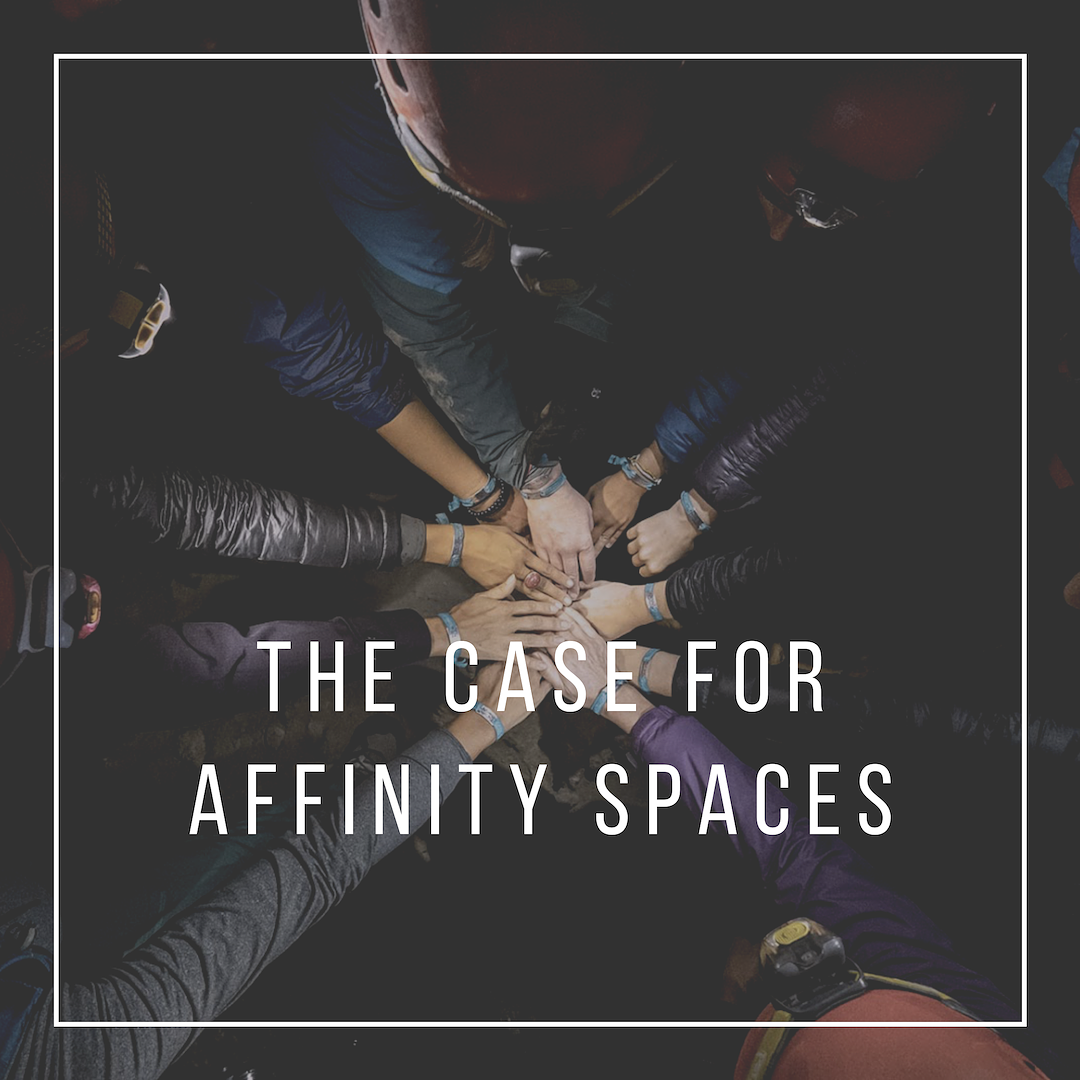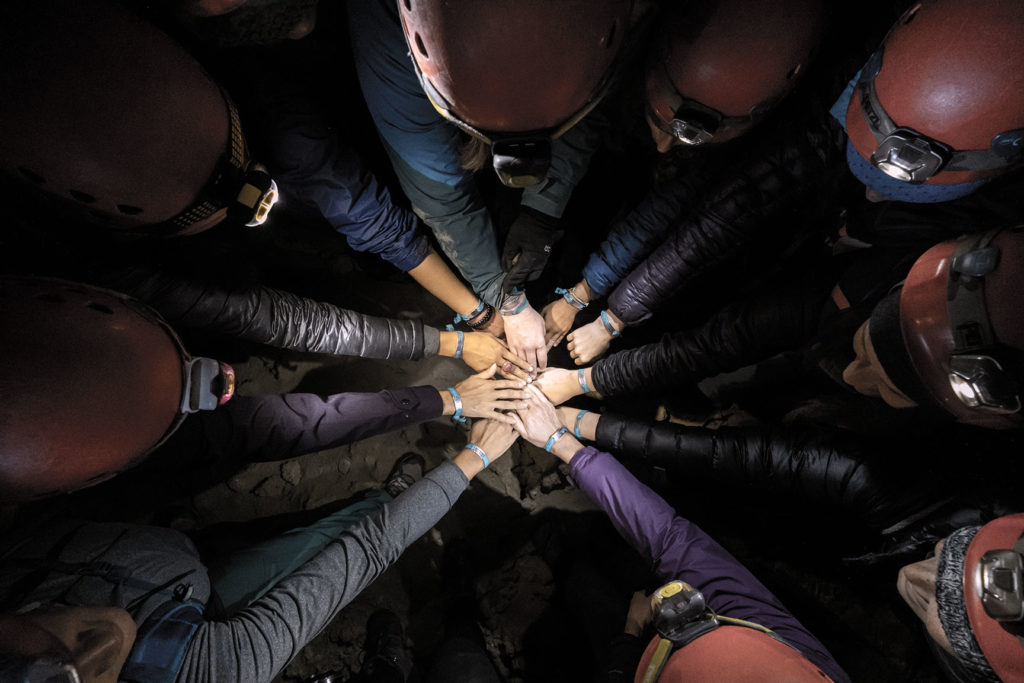THE CASE FOR AFFINITY SPACES
Affinity spaces, in a traditional sense, are spaces in which people bond over a shared interest.

Posted on Wed 29 Jul 2020 · by Elle Biesemeyer
Affinity spaces, in a traditional sense, are spaces in which people bond over a shared interest. A chess club, for example, is an affinity space. In some ways, so is a country club. But affinity spaces can have much greater social impacts, too. Identity-based affinity groups are becoming far more common, especially in the outdoors. Racial affinity groups such as Outdoor Afro unite individuals of a certain race on an opt-in basis in the same way that OUT There Adventures bring together queer youth in search of community.
Affinity spaces are an act of resistance. There is tremendous power in coming together to center growth, joy, and community in a world that does not allow us those experiences in abundance.
These groups are exclusive, yes, but with the purpose of ensuring the freedom of their members. In affinity groups, structures such as racism or homophobia are recognized but de-centered. The pressure to explain ourselves upon the basis of identity is alleviated. We need not justify our existence under those structures that seek to dehumanize us outside of this space.
Events like our AdventurUs Women Escapes “give women more freedom to be themselves and they empower them to take more chances and try new things,” an AdventurUs Women alumna says.
Affinity spaces are an act of resistance. There is tremendous power in coming together to center growth, joy, and community in a world that does not allow us those experiences in abundance. We are free to explore ourselves and our interests, to take risks in a welcome & loving atmosphere.

AdventurUs Women event participants preparing to cave.
The critical component of an affinity space is to build a community in which we see ourselves in others. We can find kinship in our spirits, but this will never erase the everyday experiences we all have as individuals.
At AdventurUs Women, we work to cultivate communities of women who love the outdoors as much as we do. Who yearn to nurture that love, take risks, and grow in the company of other women who share their spirit. The outdoors are historically dominated by white, straight, cisgender, able-bodied men. We acknowledge this canon, but rather than dwell in the issue, we instead make deliberate space for women in the outdoors.
The critical component of an affinity space is to build a community in which we see ourselves in others.
Many women in the AdventurUs Women community can attest to the transformative power of the outdoors and women-centered experiences. Together, we willfully endure rigor and discomfort and come out revitalized, invigorated. We transform challenges into cherished memories and carry the skills we learned with us far after we return home. Summiting a mountain, carrying our lives on our backs, even learning to dig a cat hole coaxes out the resilience we had all along.
A Bend Escape participant shared that in addition to the outdoor skills she developed, “I also learned not to doubt myself and to lean into the power I have within me.”
“It gave me the opportunity to connect and find confidence that I didn’t even know I had,” says another.
For some, joining an affinity group, such as ours at AdventurUs Women, is the first step in not feeling alone. Discovering and engaging with a community of like-minded individuals with a shared passion can bridge differences and foster life-long friendships. Every moment spent in an affinity space is a chance to connect with each other and ourselves. Around the fire pit, on our mountain bikes, and while climbing a canyon wall, we build a community where everyone thrives.
We support and strongly believe in the importance of outdoor affinity groups of all kinds. These groups are instrumental in not only discovering the magic of the outdoors, but the magic in ourselves.